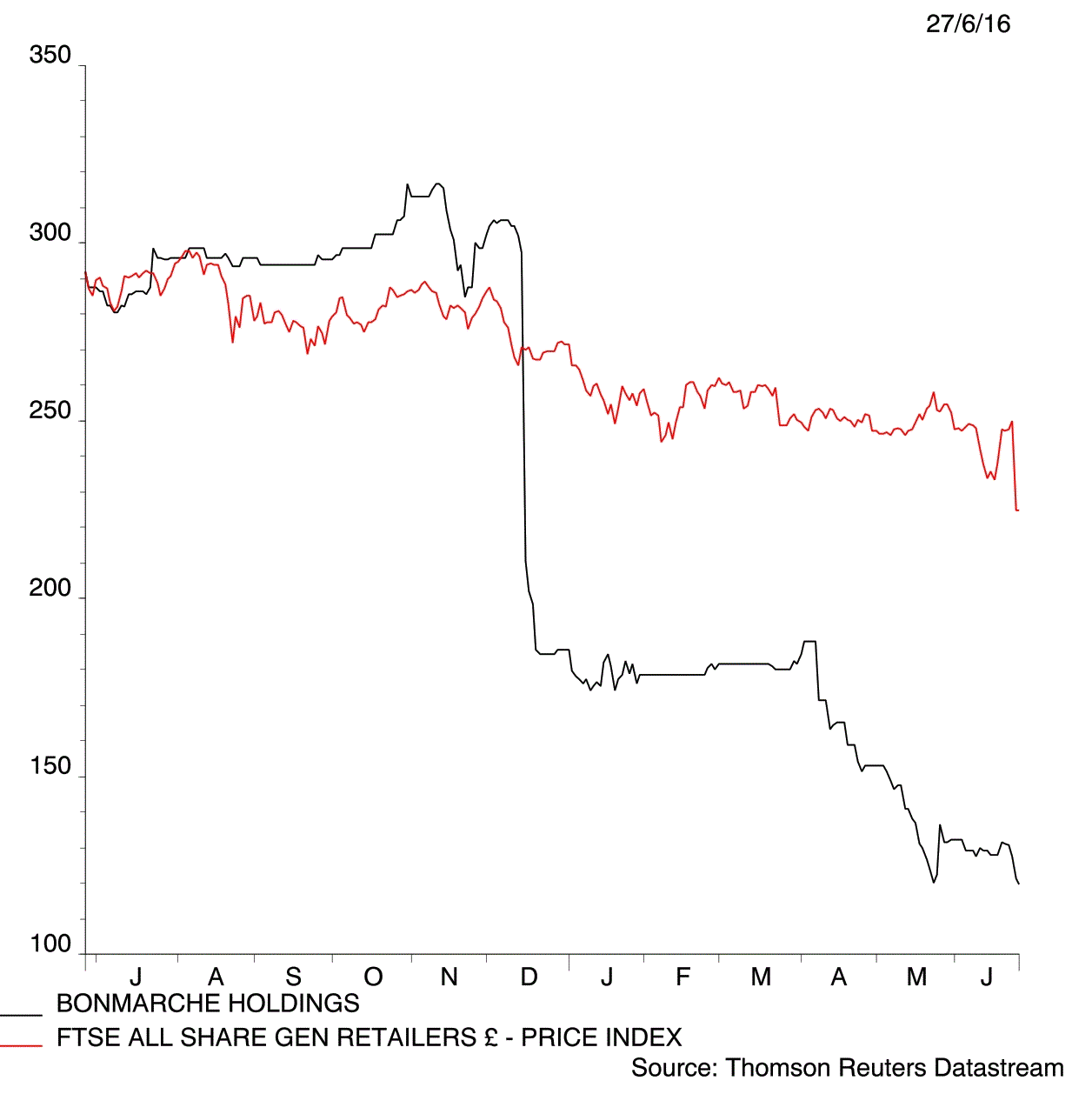
Women's value fashion retailer Bonmarche (BON) has confirmed new CEO Helen Connolly's start date (15 Aug). New broom Connolly (pictured below) looks well-equipped for the role, though the seasoned retailer faces a hard road ahead to reinvigorate sales and profitability.
Incumbent CEO Beth Butterwick will remain in charge until 12 August to ensure a smooth handover to Connolly, currently senior buying director for ASDA's George clothing label and with a CV that includes stints with Next (NXT) and Dorothy Perkins.
Connolly's certainly has the credentials for the role given her experience in the budget female fashion category, though following a vote for Brexit, the outlook for Bonmarche and high street retail rivals has become even more uncertain.
In common with other apparel purveyors, Wakefield-headquartered Bonmarche faces the twin threats of a collapse in consumer confidence and the impact of a weaker pound, which will increase overseas sourcing costs and compounds the rising costs from the Living Wage.
Bonmarche, which sells clothing for females over the age of 50 through its stores and concessions, website, mail order catalogues and the Ideal World TV shopping channel, could struggle to pass these higher buying costs on to shoppers at a time when confidence is rocked by economic turmoil.
A bombed-out share price follows a pair of profit warnings triggered by difficult recent trading conditions on the UK high street, earnings alerts reflected in full-year results (10 Jun), showing a dip in pre-tax profit to £10.6 million (2015: 12.4 million). Last year's sales were hindered first by an unseasonably warm November and December, then by continued colder weather crimping demand for spring products and trading remains tough.
The positive news is Bonmarche, which has appointed a new designer, Mark Heyes, has self-help levers to pull and boasts a strong balance sheet. Connolly also inherits a retailer plugged into the greater affluence of the over-50s female demographic as well as the burgeoning 'plus-size' market.
Much of the older cohort of consumers have significant disposable income following last year’s pension reforms and tend to have low debt levels and some savings; as such, they should be able to better weather an economic shock than the more youthful demographic. For more on the retailer's niche appeal and recovery potential, read our small caps article from May.






